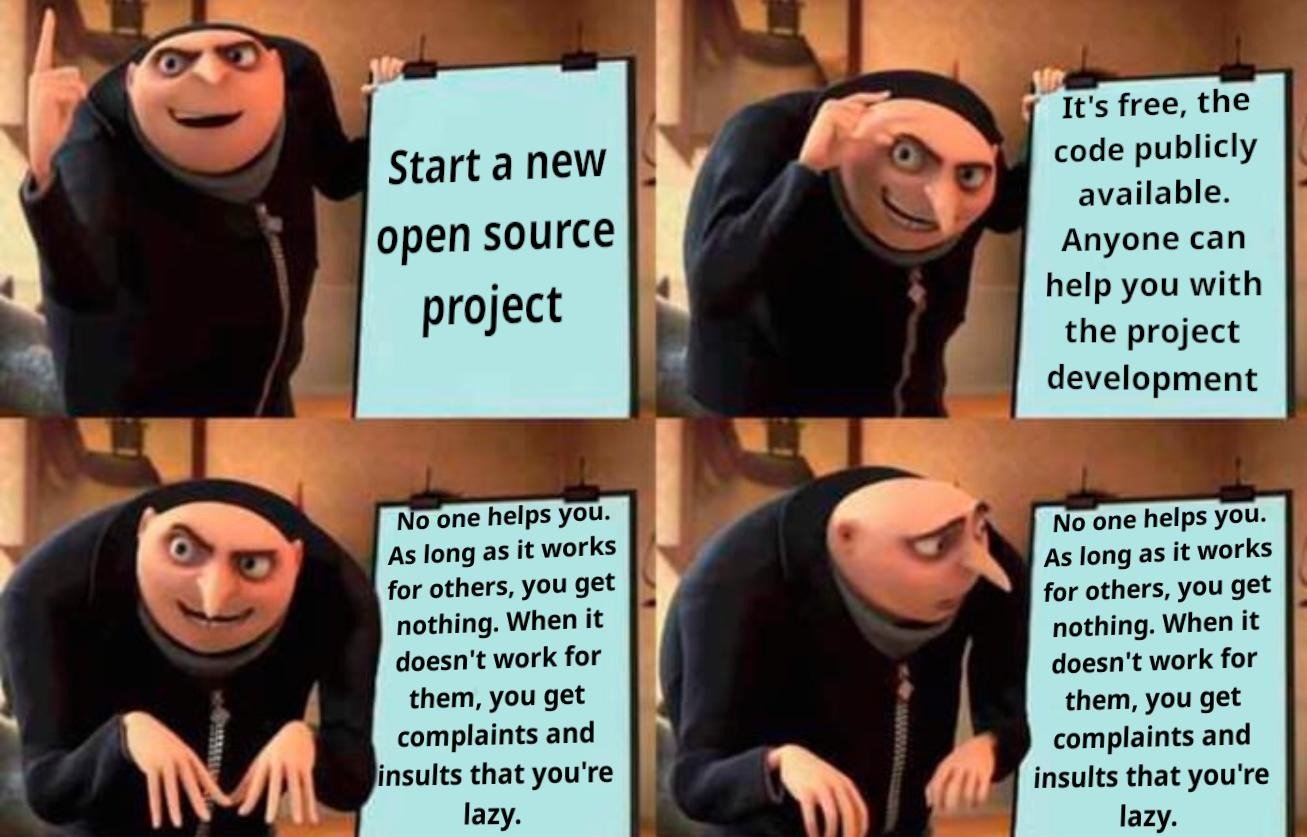this post was submitted on 02 May 2024
753 points (96.8% liked)
Open Source
31060 readers
483 users here now
All about open source! Feel free to ask questions, and share news, and interesting stuff!
Useful Links
- Open Source Initiative
- Free Software Foundation
- Electronic Frontier Foundation
- Software Freedom Conservancy
- It's FOSS
- Android FOSS Apps Megathread
Rules
- Posts must be relevant to the open source ideology
- No NSFW content
- No hate speech, bigotry, etc
Related Communities
Community icon from opensource.org, but we are not affiliated with them.
founded 5 years ago
MODERATORS
you are viewing a single comment's thread
view the rest of the comments
view the rest of the comments

Oh for sure. I don't think this advice applies to projects that already have a following. But many, perhaps most, projects don't have much of a following even if you intended for others to use it. If you have a pet project that a reasonably small number of users, you might find you get occasional pull requests but they never meet the code standards, or you ask for changes but they never happen and the pull request sits there, or you reject them because you wouldn't have structured it like that - well consider accepting the pull request and merging as is. Then you can follow up with changes to fix code quality with your own changes.
This approach shows you appreciate the contribution, even though it's not perfect. If you find the same person contributing often but making the same errors, then for sure mention it in a way that's easy for them to understand how to resolve it. But if you're rigid then you probably won't get so many contributions as people will think they aren't up to your standards.
I'd also argue that merging then fixing up yourself later would be more time efficient than reviewing code and providing feedback on changes to be made 😆